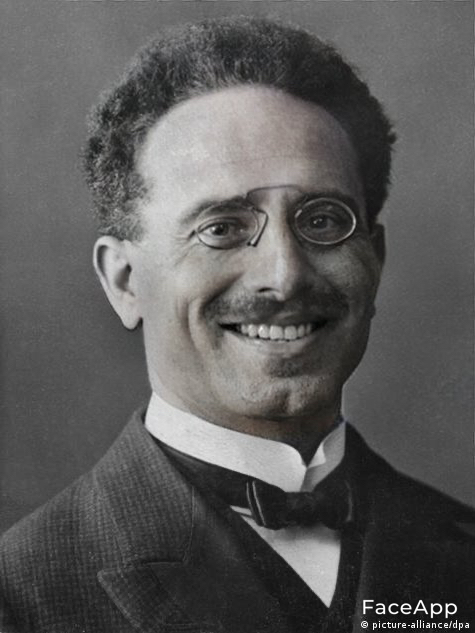His win was far from a lock, and I feel like it would have been so easy to bomb a building and then have someone claim there was residue of whatever. By late 2004 the war was not popular, for a lot of libs "finding" WMDs would have probably justified the most evil thing the US had done in decades, I'm sure.
I was so sure they would serve up an October surprise. When they didn't it really shook me, like I didn't understand politics at all. Maybe I still don't.
Thoughts?
the Republicans had a way stronger position going into the election as they were running on homophobia while the cowardly Democrats backed away from the issue by not backing LGBTQ rights or gay marriage in general
nah i don't think so. though the dems leading the way on gay issues may have accelerated the development of legal protections, frankly the fact is that at the time, there just wasn't the cultural appetite for that (americans only started supporting gay marriage after the oracles on the Court decreed that the issue was beyond the political sphere, after which they fell in line, their bigotries manifesting in other axes of social friction).
dems lost because the economy was humming (first and foremost), and the war wasn't so far lost in the public consciousness as to make an anti-war platform credible (even after 20 years after afghanistan, the lost war of lost wars, americans were still kicking and fucking screaming when it was time to admit that they lost. biden's cratering in the polls at the time illustrates this). trust in american institutions was high, and the winning discourse was always a respect for the office, or the troops, or the american project generally.
and, of course, the dems didn't even run a consistent anti-war platform. they torpedoed dean and went with kerry, a horse-faced patrician gold-digging dipshit, who couldn't square this prevailing rule of institutional respect with the anomaly of contingent imperial overreach in iraq. he got swiftly swift-boated, and flipflopped his way to defeat.
~
really the easiest (and smartest, apparently) political calculation of the generation was by obama: just vote against the war (and do so without being a leading outspoken critic of it). if the war goes well, the war won't be an issue and it won't affect you down the line. if the war goes spectacularly poorly, as it did, it will continue to be the foreign policy issue du jour (de decade?), and you get to say i told you so at every opportunity.
Minor point. Obama lucked into not voting for the war, by not entering the Senate till 2005. So he wasn't burdened with having voted for it, and could act like he wouldn't have. I think he probably would have voted for it if he'd been there
A team of UN inspectors basically debunked the whole idea, including some US military personnel. I wish I could say more, but I can't without really doxxing myself, so you'll just have to take this on faith. So source is "trust me bro", but trust me bro.
Why were they suddenly concerned about their stories being robust? Shouldn't the lead-up to Iraq have taught them they don't really need good evidence, just to repeat the same thing over and over?
US politics was not nearly as polarized as it is today. The propaganda knob has really been turned up over the last 20 years, probably partially as a result of the media not co-operating with the DoD's agenda in Iraq.
US politics was not nearly as polarized as it is today.
polarization discourse flattens power dynamics and says nothing
"Polarization Is Dividing American Society, Not Just Politics,” laments The New York Times. “The Constitution Is Threatened by Tribalism,” frets The Atlantic. “American politics has reached peak polarization,” declares Vox. After the past few election cycles, and as uprisings occur throughout the country, we’ve seen endless concern about our alleged zenith of “polarization” and “tribalism.”
The Right and the Left, we are told, have grown too radical and today lack the ability to “get things done” and “come together” with a “shared reality.” It’s a superficially appealing narrative — one nostalgic for a non-specified past time of ideal consensus building and Reasonable Centrism.
But it’s also a narrative driven by a fantasy that ignores material forces that have shifted the U.S. political establishment further to the right, as the ruling political and economic class has helped sow distrust and paranoia with decades of deadly wars, runaway and rampant inequality, lethal racism and the failed promises of endless economic growth.
On this episode, we explore the origins of “polarization” and “partisan tribalism” discourse, profile its biggest pushers, detail who it serves––and who it gets off the hook––and lay out why reductionist and vague “polarization” laments are so beloved by our media and political elite.
Hyper-partisanship makes people more susceptible to fascist propaganda, though. It's one thing to fetishize civility, but recognizing that fascism exploits material conditions by fueling partisan divides is valid and important. It's true that material conditions will always dictate whether or not a society maintains the status quo or engages in radical change. Liberalism to fascism is the radical change most likely to result in a hyper-partisan society.
You're correct in what you say but I wouldn't call hyper-partisanship "polarization" because it implies that the two parties are moving away from each other in policies when in fact they are simply more hostile to each other even as they both move to the right. Perhaps by "polarization" you simply mean partisanship, which I can get behind, but it's a buzzword the US media uses to imply that centrism is the solution and the democrats have moved too far left. Partisanship is a better word, because it implies blind loyalty to these institutions regardless of their policies.
"polarization" discourse bad
"asymmetric polarization" discourse good
there we go
the republicans run to the right and the democrats are dragged behind on a leash, and the leash is labeled capitalism
I'm using "polarization" literally, as in movement to opposite poles. I consume virtually zero mainstream American media so I'm probably lacking the context that you have for its use as a buzzword. It's funny to me that anyone would think that the Democrats are "left". I've said it before, but it bears repeating, in 10 years on this current trajectory everyone will think Marx is best known for organizing the first Pride Parade.
I’m using “polarization” literally, as in movement to opposite poles.
Opposite poles with respect to what? Policies? If you mean policies, The two American parties aren't doing this. They're increasingly beholden to capital. Especially since "Citizens United" deregulated dark money campaign donations. They aren't moving in opposite directions. The idea that they're moving too far from each other is an idea mostly pushed in American media by people who are disappointed they aren't cooperating even more when it comes to screwing over the working class. Even though they're already doing that. It's mostly liberal civility fetishism. But even on a "civility" level they've been more polarized in the past. The civil war, for example. Also the prescribed solution by these pundits is always "the democrats should move to the right, because they're becoming too far left and unreasonable"
I’ve said it before, but it bears repeating, in 10 years on this current trajectory everyone will think Marx is best known for organizing the first Pride Parade.
not sure what you mean by this.
It means that "left" to the average person in the US now only means pro-LGBTQ and pro-choice, and maybe nominally environmentalist and pro-union.
And of course the two parties don't have anything to offer in terms of substantive difference, because they both serve capital. The poles I see arise from to whom to assign assign blame for the declining material conditions; one pole blames the queers/jews/illegals and the other blames those they see as "anti-progressive".
And of course the two parties don’t have anything to offer in terms of substantive difference, because they both serve capital. The poles I see arise from to whom to assign assign blame for the declining material conditions; one pole blames the queers/jews/illegals and the other blames those they see as “anti-progressive”.
I am in agreement with this and have no objections or nuance to add. Got ya.
Yeah, I think sometimes the Pride Parade comment initially strikes people as anti-queer or dismissive of queer marginalization. I am militantly lesbian (the trans-inclusive flavor, though). I'm just really angry that my identity, and I'm old enough to have existed in a time long before being gay was ok, has been appropriated by capitalists to sell more things.
The republicans and democrats have def both become more culturally insular and tribal.
"culturally" only implies in terms of rhetoric. Dems might tepidly stand up for certain groups (like LGBTQ+, ethnic minorities) during election time, but they barely do anything once in power. Also this acceptance is driven by capital's desire for profits, rather than by a genuine concern for the well being of marginalized groups. You see corporations flying pride/BLM flags not because they're allies of these downtrodden groups, but because they view these groups as targeted sales demographics whose conspicuous consumption of certain products is profitable. If you don't have enough money to conspicuously consume their products, they don't care about you, regardless of what marginalized identities you might have. In reality, you have the radical leadership of the early Ferguson BLM being shot and lit on fire on their cars and no investigation afterwards. You have fascist war criminals like Eddie Gallagher being pardoned with zero material pushback from the democrats. You have AOC voting to give ICE more money, and voting with tears in her eyes to give Israel more weapons. You have financial precarity plunging millions into poverty where they become easy targets for all sorts of systemic violence and discrimination. You have fully cooperative bipartisan agendas (regardless of campaign trail rhetoric) when it comes to waging wars, oppressing migrants, deregulating key industrial sectors, oppressing unions, and disciplining labor with austerity. When you're at the bottom, like most marginalized people are, pride flag burger wrappers means nothing. It's just a gesture. The only people who really feel the "cultural" difference between the parties are petit bourgeois. A black female supreme court justice is meaningful if you're a black millionaire, but it's not meaningful if you're a black man currently in prison for possessing drugs in 2010.
Back in the 90’s people from the two groups being friends was actually a real thing, it no longer is.
I don’t mean the actual leaders I mean among the mooks. I also literally mean regardless of policy or ideology, they as cultural groups instinctively oppose each other just out of tribalism.
socialists don't get along with their republican uncles at thanksgiving, but rank-and-file democrats absolutely will go to the ball game with their rank-and-file republican cousins, and just roll their eyes at whatever they say. In fact. I'd say most of the mooks will actually parrot the pundit bullshit of "can't we all just get along? Aren't we all too polarized these days? I wish there was more bipartisanship!" that kind of rhetoric polls well because the middle class white moderates prefer a negative peace, which is the absence of tension, to a positive peace, which is the presence of justice :mlk-yes:
What I am saying is that there has been an objective instinctual tribal polarization between the two political tribal groups in our society in the past 20 years
Right. 20 years. Because one has to narrow the window of US political history to only the past 20 years for this to make sense. Because I look back at things like the LA riots, the civil rights movement, the civil war, etc, and I see much more violent levels of so-called tribal polarization in our past than in our present. Black people used to be lynched over mere accusations. What we have today might be worse than the mid 90s, because of the brief "lull" between the collapse of the USSR and the beginning of the war on terror, but that lull was the exception rather than the rule.
look at this photo from the civil rights era. We've always been polarized and tribal. The real trick here is pretending everything began 1995-2005, which is easy because a lot of people who are late teens/young adults now were born then. I think also that there is a tendency to look at the elected party members and the middle class(es) too much.
No, you are just arguing way beyond the point i am making.
I sincerely apologize if that's the case. Perhaps I lost track of who I was speaking to. I've worked two long weeks and I am very tired but nevertheless very passionate when discussing these things.
I am talking about just the “politically” active class of “upper middle class”, mostly white but not exclusively, people. This group is the critical class for capital because they are the petite bourgeois foot soldiers for them. In that group there has been a decided polarization, largely driven by the right. A lot if this is really stupid cultural shit but its there.
Nevertheless I still disagreed with this point because, as I said, these classes are the classes that are constantly in lockstep when it comes to financial matters, and constantly updoot op eds about how there's "too much polarization" and there "needs to be more bipartisanship". That's why I posted the citations needed episode in the first place. I am very suspicious of any time the term "polarization" is employed with respect to US politics and, to the person I was originally discussing this with, i said "partisanship" is a better word because what's really going on is they're blindly loyal to the parties as institutions, rather than to the policy goals or ideological agendas being pursued by those parties. This always happens with US politics. The parties are merely vessels for capital. There was a time when democrats were the party of klansmen and republicans were the party of abolitionists and freesoilers. But obviously they "switched places" (scare quotes) because the US parties are vessels of capital rather than vessels of ideology. That's what makes them so dangerous, and the loyalty to them so empty.
Perhaps my real objection here is to the fact that, when a lot of people hear the word "polarization" they will assume that the parties should be even more in lockstep than they already are, and perhaps a more nuanced analysis of their class character is in order, as we already elaborated by discussing this at length.
The media would also be eager to report on the fake evidence, since they were so insanely pro-war in the first place. It would make them look less shitty.
I wish I could say more, but I can’t without really doxxing myself
Thank you for keeping a watchful eye on us from langley
You know how the matrix said 1999 was the peak of liberal civilization? It was right. You might be too young to remember but I got in a real fight about not respecting the president enough for questioning the war. There were still adults in their prime that never touched a computer. In a real way that was another era that was old and dying but people couldn't understand it at the time. That was what the gen X nihilism was about. The didn't have the internet to teach them about marxism.
We weren't as socially developed then as we were now. It is wild how fast things have changed.
I don't necessarily disagree, just not really sure how to connect that with my question?
We didn't know we could ask for more evidence. In a way that seems alien to think about now it seemed impossible we could be lied to on that scale.
It was such a big lie that it seemed unbelievable to ... just about everybody (but not actually everybody) that it would be so openly attempted.
There were still adults in their prime that never touched a computer.
Reminds me of Blair/Campbell and co
He recently told chat-show host Michael Parkinson he is such a technophobe he sometimes watches programmes at 10 Downing Street with no sound, because he cannot turn up the volume on the television set.
…
Mr Campbell said his aides would sift emails for him and type up handwritten replies.
I remember a take about this on a previous thread that was something like "faking it is a lot harder than saying 'oops bad intel' or just never mentioning it again. If you fake it you have to produce fake evidence."
Do you though? They didn't have to provide any evidence of killing Bin Laden.
Honestly I believe they killed him, but had to dump his body because they were embarrassed that a psycho operator canoed his head.
Yeah, I assume they were ordered to kill not capture because putting him on trial would be a huge embarrassment for the state. If he actually talked it would just implicate like half the Saudi royal family. Easier to kill him and dump the body.
yeah my whole thing isn't that they faked killing him, but that they faked searching for him. I feel like Pakistani Intelligence housed him in that villa with US cooperation, and then when a new administration came in (Obama) plans were made to dispose of him.
coincidentally, I asked hexbear comrades about this recently. Here's that thread with their responses: https://hexbear.net/post/182310






